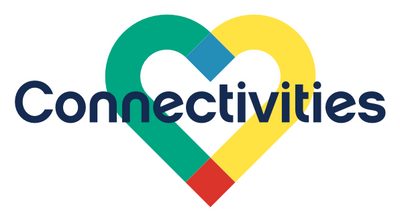+Recent Articles
- Nurturing Minds: The Power of Critical Thinking and Problem-Solving for Individuals with Learning, Cognitive, and Social Differences
- How fun and creativity can boost your mental well-being.
- Nurturing Social Skills: The Power of Hands-On Activities
- How Can Connectivities Help My Child or Loved One?
- How to Connect With Loved Ones Living with Dementia
- How to be the best dementia or Alzheimer's caregiver you can be
- Featured: Resources for Caregivers of Older Adults with Dementia written by Elder Law Answers
- Knowing When it Might be Time to Move
- Engagement with Connectivities
- Featured: How to Provide Balance and More Fulfilling Activities for People Living with Dementia
Nurturing Social Skills: The Power of Hands-On Activities
In today's fast-paced, technology-driven world, concerns about the decline in social skills among children have grown. The ability to navigate social interactions,
communicate effectively, and collaborate with others is crucial for success in personal relationships, academic pursuits, and future careers. One effective way to foster the development of these essential social skills is through hands-on activities. In this blog post, we will explore the importance of social skills and delve into how hands-on activities can play a pivotal role in nurturing and enhancing these skills in children.
Social skills encompass a range of abilities that enable individuals to interact
harmoniously with others. These skills include effective communication, active listening, empathy, cooperation, problem-solving, and conflict resolution. Strong social skills not only enhance personal relationships but also contribute to academic achievement and future professional success. Research suggests that individuals with well-developed social skills tend to have higher levels of self-esteem, increased peer acceptance, and better mental health outcomes.
Hands-on activities provide a dynamic and engaging platform for children to learn and practice social skills. Here's how these activities can help in the development of social skills:
1. Collaboration and Cooperation: Engaging in hands-on activities requires children to work together towards a common goal. Whether building a tower with blocks, conducting a science experiment, or creating artwork, children learn the value of collaboration, cooperation, and teamwork. Through these activities, they develop an understanding of the importance of listening to others, sharing ideas, and compromising, fostering a sense of collective accomplishment.
2. Communication and Active Listening: Hands-on activities provide opportunities
for children to express their thoughts, ideas, and questions, improving their
communication skills. Additionally, participating in group tasks encourages active
listening as children need to understand instructions, follow directions, and
respond appropriately. These activities enhance both verbal and nonverbal
communication, promoting effective interaction with peers and adults.
3. Problem-Solving and Critical Thinking: Hands-on activities often involve
challenges that require problem-solving and critical thinking. As children work
together to overcome obstacles, they learn to analyze situations, generate ideas,
evaluate alternatives, and make decisions collectively. These experiences
promote independent thinking, creativity, and resilience, nurturing essential skills
for social problem-solving in real-life scenarios.
4. Empathy and Perspective-Taking: By engaging in hands-on activities, children
develop empathy and perspective-taking skills. They learn to consider the
thoughts, feelings, and perspectives of others, fostering a deeper understanding
of diverse viewpoints. This empathy-building aspect of hands-on activities
encourages compassion, tolerance, and respect, leading to more harmonious
social interactions.
5. Emotional Regulation and Resilience: Hands-on activities provide a safe space
for children to experience and manage a range of emotions. From the joy of
success to the frustration of setbacks, children learn to regulate their emotions,
cope with challenges, and adapt to different situations. This emotional resilience
helps them navigate social interactions effectively, respond appropriately to
conflicts, and maintain positive relationships.
6. Conflict Resolution: During hands-on activities, conflicts or disagreements may
arise. These situations offer valuable opportunities for children to practice conflict
resolution skills. Through negotiation, compromise, active listening, and finding
mutually satisfactory solutions, children develop the ability to resolve conflicts
peacefully. This skill set equips them with invaluable tools for managing
interpersonal challenges throughout their lives.
In a world that increasingly relies on digital communication, the importance of social skills cannot be overstated. Hands-on activities serve as a powerful catalyst for the development of these skills, allowing children to collaborate, communicate, problem-solve, empathize, regulate emotions, and resolve conflicts. By incorporating hands-on activities into educational and recreational settings, parents, educators, and caregivers can provide children with valuable
opportunities!
Leave a comment
Comments will be approved before showing up.




